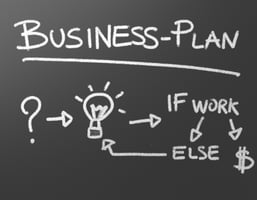Spending too much time working in your business rather than on it? We would like to announce our...
My business is worth WHAT!
As a Forensic Accountant, I’ve had the following conversation too many times…
Business Owner – “I’ve decided it’s time to retire. How much is my business worth?”
Advisor – “How much do you think it’s worth?”
Business Owner – “I really don’t know but, if I had to guess, I’d say around $2.5 Million.”
Advisor – “Well, uhhhh, actually, you might find that if we did a valuation of the business, it may only be worth about $500,000.”
Business Owner – “That’s impossible, I can’t retire on that…”
And so it goes. That’s probably not what you want to hear is it? Sorry, but in many cases the above is reality. The good news is that it doesn’t have to be you.
The fact is most business owners don’t think about what their business is worth until it’s too late. The vast majority of owners don’t plan for the sale of their business and as a result they don’t take any (and I do mean ANY) steps to maximize their return on their years of investment.
That’s a symptom associated with owners that spend too much time working IN their business and not enough time ON their business. These owners don’t think in terms of selling their business at some point in time. Frequently, they view the business as a vehicle that provides them with an income and there is a rather fuzzy thought or picture involving a sale to fund their retirement.
Consider this…
For most business owners their business is the single largest asset they have.
At the time of retiring the average business owner in Australia has a small amount in superannuation; most will have a personal residence that has only recently had the mortgage paid off and less will have a significant investment portfolio. Remember, these are averages so your circumstances may be better or worse off. In many situations the family business will be the most significant financial asset available to provide for the owner’s retirement years.
You should be asking yourself these questions:
- Do I really know what my business is worth?
- Have I had a professional business valuation prepared recently?
- Do I know what factors drive the value of my business?
- What things should I be doing right now that will influence the value I receive when it’s time to retire or sell?
- Should I be making some provision for the business in my retirement planning?
- Did my investment advisor consider the value of my business when determining my portfolio asset mix (equities and fixed income securities)? Did they classify my holding company’s investment in land and buildings as equity or as real estate or did they consider it at all?
It helps if you think about the family business as an investment just as you would your shares in BHP. The sale of a business is almost always a very emotional ordeal for owner/managers and, as we can all probably attest, emotion is not always helpful to us in reaching sound financial decisions.
Our experience has been that owners frequently think of their business “as their baby” because of the years of work (sweat and tears), nurturing and growing the business. The business, whether we want to admit it or not, has wound its way through our lives and impacts on almost everything we have done since we started it.
However, you need to keep in mind that there are some big differences between your business and publicly traded shares beyond the emotional issues. You need to know that two of the biggest differences are:
- There may not be a ready market for your company, and
- The market price for your business can vary significantly depending on the purchaser you are able to attract.
Of course, you can influence both to your advantage, but only if you start planning now! It’s never too early to adopt this mindset. It’s no coincidence that the things that will increase the value of your business will make your business life more rewarding and enjoyable!
Your business, if properly run and prepared for sale, could (and I would suggest should) eclipse the value of your other assets at the time of your retirement or the sale of your business.


